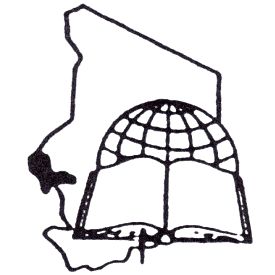PARTAGE DU PAYS DE CANAAN
Ch. 13 à 24. (Mi 4:4)
Partage du pays à l’orient du Jourdain
V. 1-7: cf. (Jg 3:1-5; 1:27-36.) (Hé 5:12; 6:11.)1 Josué était vieux, avancé en âge. L’Éternel lui dit alors: Tu es devenu vieux, tu es avancé en âge, et le pays qui te reste à soumettre est très grand. 2 Voici le pays qui reste: tous les districts des Philistins et tout le territoire des Gueschuriens, 3 depuis le Schichor qui coule devant l’Égypte jusqu’à la frontière d’Ékron au nord, contrée qui doit être tenue pour cananéenne, et qui est occupée par les cinq princes des Philistins, celui de Gaza, celui d’Asdod, celui d’Askalon, celui de Gath et celui d’Ékron, et par les Avviens; 4 à partir du midi, tout le pays des Cananéens, et Meara qui est aux Sidoniens, jusqu’à Aphek, jusqu’à la frontière des Amoréens; 5 le pays des Guibliens, et tout le Liban vers le soleil levant, depuis Baal-Gad au pied de la montagne d’Hermon jusqu’à l’entrée de Hamath; 6 tous les habitants de la montagne, depuis le Liban jusqu’à Misrephoth-Maïm, tous les Sidoniens. Je les chasserai devant les enfants d’Israël. Donne seulement ce pays en héritage par le sort à Israël, comme je te l’ai prescrit; 7 et divise maintenant ce pays par portions entre les neuf tribus et la demi-tribu de Manassé.
V. 8-33: cf. No 32. De 3:8-17.8 Les Rubénites et les Gadites, avec l’autre moitié de la tribu de Manassé, ont reçu leur héritage, que Moïse leur a donné de l’autre côté du Jourdain, à l’orient, comme le leur a donné Moïse, serviteur de l’Éternel: 9 depuis Aroër sur les bords du torrent de l’Arnon, et depuis la ville qui est au milieu de la vallée, toute la plaine de Médeba, jusqu’à Dibon; 10 toutes les villes de Sihon, roi des Amoréens, qui régnait à Hesbon, jusqu’à la frontière des enfants d’Ammon; 11 Galaad, le territoire des Gueschuriens et des Maacathiens, toute la montagne d’Hermon, et tout Basan, jusqu’à Salca; 12 tout le royaume d’Og en Basan, qui régnait à Aschtaroth et à Édréï, et qui était le seul reste des Rephaïm. Moïse battit ces rois, et les chassa. 13 Mais les enfants d’Israël ne chassèrent point les Gueschuriens et les Maacathiens, qui ont habité au milieu d’Israël jusqu’à ce jour. 14 La tribu de Lévi fut la seule à laquelle Moïse ne donna point d’héritage; les sacrifices consumés par le feu devant l’Éternel, le Dieu d’Israël, tel fut son héritage, comme il le lui avait dit. 15 Moïse avait donné à la tribu des fils de Ruben une part selon leurs familles. 16 Ils eurent pour territoire, à partir d’Aroër sur les bords du torrent d’Arnon, et de la ville qui est au milieu de la vallée, toute la plaine près de Médeba, 17 Hesbon et toutes ses villes dans la plaine, Dibon, Bamoth-Baal, Beth-Baal-Meon, 18 Jahats, Kedémoth, Méphaath, 19 Kirjathaïm, Sibma, Tséreth-Haschachar sur la montagne de la vallée, 20 Beth-Peor, les coteaux du Pisga, Beth-Jeschimoth, 21 toutes les villes de la plaine, et tout le royaume de Sihon, roi des Amoréens, qui régnait à Hesbon: Moïse l’avait battu, lui et les princes de Madian, Évi, Rékem, Tsur, Hur et Réba, princes qui relevaient de Sihon et qui habitaient dans le pays. 22 Parmi ceux que tuèrent les enfants d’Israël, ils avaient aussi fait périr avec l’épée le devin Balaam, fils de Beor. 23 Le Jourdain servait de limite au territoire des fils de Ruben. Voilà l’héritage des fils de Ruben selon leurs familles; les villes et leurs villages. 24 Moïse avait donné à la tribu de Gad, aux fils de Gad, une part selon leurs familles. 25 Ils eurent pour territoire Jaezer, toutes les villes de Galaad, la moitié du pays des enfants d’Ammon jusqu’à Aroër vis-à-vis de Rabba, 26 depuis Hesbon jusqu’à Ramath-Mitspé et Bethonim, depuis Mahanaïm jusqu’à la frontière de Debir, 27 et, dans la vallée, Beth-Haram, Beth-Nimra, Succoth et Tsaphon, reste du royaume de Sihon, roi de Hesbon, ayant le Jourdain pour limite jusqu’à l’extrémité de la mer de Kinnéreth de l’autre côté du Jourdain, à l’orient. 28 Voilà l’héritage des fils de Gad selon leurs familles; les villes et leurs villages. 29 Moïse avait donné à la demi-tribu de Manassé, aux fils de Manassé, une part selon leurs familles. 30 Ils eurent pour territoire, à partir de Mahanaïm, tout Basan, tout le royaume d’Og, roi de Basan, et tous les bourgs de Jaïr en Basan, soixante villes. 31 La moitié de Galaad, Aschtaroth et Édréï, villes du royaume d’Og en Basan, échurent aux fils de Makir, fils de Manassé, à la moitié des fils de Makir, selon leurs familles. 32 Telles sont les parts que fit Moïse, lorsqu’il était dans les plaines de Moab, de l’autre côté du Jourdain, vis-à-vis de Jéricho, à l’orient. 33 Moïse ne donna point d’héritage à la tribu de Lévi; l’Éternel, le Dieu d’Israël, tel fut son héritage, comme il le lui avait dit.
The Land Israel Had Not Yet Taken
1 Many years later, the Lord told Joshua:
Now you are very old, but there is still a lot of land that Israel has not yet taken. 2-7 First, there is the Canaanite territory that starts at the Shihor River just east of Egypt and goes north to Ekron. The southern part of this region belongs to the Avvites and the Geshurites, and the land around Gaza, Ashdod, Ashkelon, Gath, and Ekron belongs to the five Philistine rulers.
The other Canaanite territory is in the north. Its northern border starts at the town of Arah, which belongs to the Sidonians. From there, it goes to Aphek, then along the Amorite border to Hamath Pass. The eastern border starts at Hamath Pass and goes south to Baal-Gad at the foot of Mount Hermon, and its southern boundary runs west from there to Misrephoth-Maim. This northern region includes the Lebanon Mountains and the land that belongs to the Gebalites and the Sidonians who live in the hill country from the Lebanon Mountains to Misrephoth-Maim.
With my help, Israel will capture these Canaanite territories and force out the people who live there. But you must divide up the land from the Jordan River to the Mediterranean Sea among the nine tribes and the half of Manasseh that don't have any land yet. Then each tribe will have its own land.
The Land East of the Jordan River
8 Moses had already given land east of the Jordan River to the tribes of Reuben, Gad, and half of Manasseh. 9 This region stretched north from the town in the middle of the Arnon River valley, and included the town of Aroer on the northern edge of the valley. It covered the flatlands of Medeba north of Dibon, 10 and took in the towns that had belonged to Sihon, the Amorite king of Heshbon. Some of these towns were as far east as the Ammonite border.
11-12 Geshur and Maacah were part of this region, and so was the whole territory that King Og had ruled, that is, Gilead, Mount Hermon, and all of Bashan as far east as Salecah. Og had lived in Ashtaroth part of each year, and he had lived in Edrei the rest of the year. Og had been one of the last of the Rephaim, but Moses had defeated Sihon and Og and their people and had forced them to leave their land. 13 However, the Israelites did not force the people of Geshur and Maacah to leave, and they still live there among the Israelites.
Why Moses Did Not Give Land to the Levi Tribe
14 Moses did not give any land to the Levi tribe, because the Lord God of Israel had told them, “Instead of land, you will receive the sacrifices offered at my altar.”
The Land Moses Gave to the Reuben Tribe
15 Moses gave land to each of the clans in the Reuben tribe. 16 Their land started in the south at the town in the middle of the Arnon River valley, took in the town of Aroer on the northern edge of the valley, and went as far north as the flatlands around Medeba. 17-21 The Amorite King Sihon had lived in Heshbon and had ruled the towns in the flatlands. Now Heshbon belonged to Reuben, and so did the following towns in the flatlands: Dibon, Bamoth-Baal, Beth-Baal-Meon, Jahaz, Kedemoth, Mephaath, Kiriathaim, Sibmah, Zereth-Shahar on the hill in the valley, Beth-Peor, Slopes of Mount Pisgah, and Beth-Jeshimoth.
Moses defeated Sihon and killed him and the Midianite chiefs who ruled parts of his kingdom for him. Their names were Evi, Rekem, Zur, Hur, and Reba. 22 The Israelites also killed Balaam the son of Beor, who had been a fortuneteller.
23 This region with its towns and villages was the land for the Reuben tribe, and the Jordan River was its western border.
The Land Moses Gave to the Gad Tribe
24 Moses also gave land to each of the clans in the Gad tribe. 25 It included the town of Jazer, and in the Gilead region their territory took in the land and towns as far east as the town of Aroer just west of Rabbah. This was about half of the land that had once belonged to the Ammonites. 26 The land given to Gad stretched from Heshbon in the south to Ramath-Mizpeh and Betonim in the north, and even further north to Mahanaim and Lidebor. 27 Gad also received the eastern half of the Jordan River valley, which had been ruled by King Sihon of Heshbon. This territory stretched as far north as Lake Galilee, and included the towns of Beth-Haram, Beth-Nimrah, Succoth, and Zaphon. 28 These regions with their towns and villages were given to the Gad tribe.
The Land Moses Gave to Half the Manasseh Tribe
29 Moses gave land east of the Jordan River to half of the clans from the Manasseh tribe. 30-31 Their land started at Mahanaim and took in the region that King Og of Bashan had ruled, including Ashtaroth and Edrei, the two towns where he had lived. The villages where the Jair clan settled were part of Manasseh's land, and so was the northern half of the region of Gilead. The clans of this half of Manasseh had 60 towns in all.
The Manasseh tribe is sometimes called the Machir tribe, after Manasseh's son Machir.
32 That was how Moses divided up the Moab Plains to the east of Jericho on the other side of the Jordan River, so these two and a half tribes would have land of their own. 33 But Moses did not give any land to the Levi tribe, because the Lord had promised that he would always provide for them.

